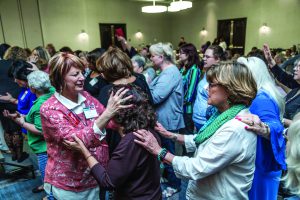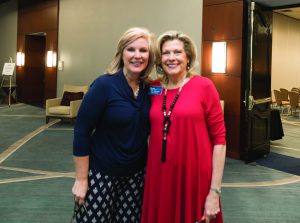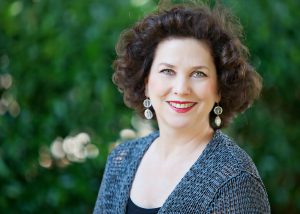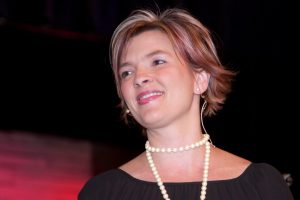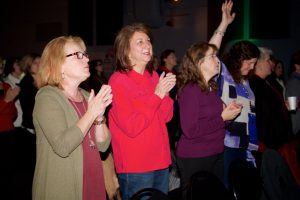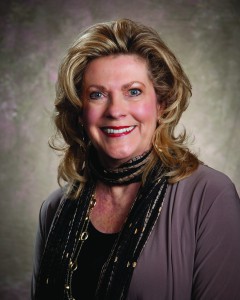Is the Traditional Plan Punitive?

While no one has explicitly told me that he or she thought the Traditional Plan is punitive, that appears to be an undercurrent of thinking among those who oppose the plan. One aspect of the plan is that it contains strict accountability measures for annual conferences, bishops, clergy, and members of boards of ordained ministry, with the expectation that they will “support, uphold, and maintain accountability to the United Methodist standards” barring the ordination of self-avowed practicing homosexuals, the celebration of same-sex marriages, and funding that promotes the acceptance of homosexuality. Those unwilling to live within our church’s standards are encouraged to withdraw from the UM Church and form or join a self-governing Methodist church that reflects their beliefs and practices.
The purpose of the Traditional Plan is to restore the unity of the church, which is currently in schism due to nine annual conferences and two jurisdictions voting to reject our church’s standards. The current crisis in the church is prompted not by differences of belief, but differences of practice. There is room in The United Methodist Church for a variety of opinions on many subjects. But once the church has set a standard for how we live our life together in the Body of Christ, it is expected that everyone will live according to that standard, to the best of their ability.
There are two ways to rectify a situation where there are divergent practices that violate the standards or rules of an organization. One way is to change the rules to allow the divergent practices. This is what the One Church Plan proposes. The other way is to expect the organization’s members to live by its standards or find another like-minded organization. This is what the Traditional Plan proposes.
Secular organizations such as Rotary or Kiwanis expect their members to live by the rules of the organization. Those who refuse to do so are often asked to leave the organization. Without such accountability, the organization has no integrity.
United Methodist clergy promise to live by the standards set by the church. One of the qualifications for ordination is that candidates are willing to “be accountable to The United Methodist Church, accept its Doctrinal Standards and Discipline and authority, accept the supervision of those appointed to this ministry, and be prepared to live in the covenant of its ordained ministers.” When candidates come forward for ordination, they must answer, “Have you studied our form of Church discipline and polity? Do you approve our Church government and polity? Will you support and maintain them?” They must also affirm, “Will you observe the following directions: … Do not mend our rules, but keep them; not for wrath, but for conscience’ sake?”
The Traditional Plan is based upon the premise that clergy and bishops have promised to live by our church’s standards and should be expected to do so. In light of the fact that the church has been unwilling for over 40 years to change its expectations regarding same-sex marriage and the ordination of LGBT persons, clergy are expected to either live by them or seek another denomination that is more in line with their theology. After all, most active clergy today came into their status knowing what the expectations of the church are, saying that they agreed with those expectations, and promising to live by them. To refuse to do so now is a breaking of their promise.
While integrity would seem to demand those unwilling to live by the standards of the church should withdraw from ministry in our denomination and seek another in which to exercise their ministry, most have not done so. In fact, many progressives have defiantly stated that they will not leave the church, nor will they live by the church’s standards.
This puts us in a situation where, for the sake of the church’s unity and integrity, discipline must be exercised. That is why enhanced accountability measures are an integral part of the Traditional Plan. Without them, the church simply continues as it is now, with some parts of the church refusing to live by the church’s expectations. This is a state of schism, not unity, and it is leading to the disintegration and decline of the denomination.
By changing the rules to accommodate disobedience, the One Church Plan creates an expectation that individual conscience trumps the standards of the church. It sows the seeds of congregationalism and further disintegrates the unity of the church. One can only anticipate that the church will likewise accommodate other conscientious objections to church standards and practices in the future, perhaps in areas such as the payment of apportionments or belief in the necessity of faith in Christ for salvation.
The Traditional Plan believes we must share common practices as a denomination on matters that are distinctively connectional. These help to form our identity as United Methodist Christians. Matters of ordination, the sacraments, doctrinal standards, and essential moral teachings are practices that hold our denomination together. Without them, we become just a crowd of people without a shared identity.
Regrettably, because of the principled refusal by some in our denomination to abide by the shared practices established by General Conference as the only legitimate authority to do so, the only way to recover unity is to enhance accountability and request those unwilling to abide by those shared practices to withdraw from the denomination. The plan balances these stricter accountability measures with an open door for annual conferences, congregations, and clergy to leave the denomination without penalty.
The process for departure is simple and straightforward, without a lot of hoops to jump through. The financial obligations are minimal, seeking only to keep our promises to our retired clergy regarding pensions. And a suggested modification of the Traditional Plan provides for a one-time grant of $200,000 to any annual conference that withdraws in order to assist with transitional expenses. Those departing could even continue some forms of partnership and cooperation with The United Methodist Church, including joint mission work and continued participation in benefit plans through Wespath.
The Traditional Plan is not punitive toward those having the integrity to depart from a denomination that they can no longer support. The stricter accountability measures are only made necessary for those who refuse to keep the promises they made to abide by our polity when they were ordained as clergy and consecrated as bishops. This approach is the only way forward that will restore unity in our denomination in the years ahead.
Thomas Lambrecht is a United Methodist clergyperson and the vice president of Good News. He also served as a member of the Commission on a Way Forward.




